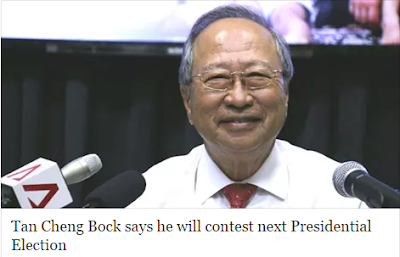QUIZ QUESTION:
Why did the commuter ask to see Chan Chun Sing's watch before he was convinced that the person he saw was indeed Chan Chun Sing?
Minister Chan Chun Sing came from a single-parent family. His poor background made him what he is - determined to succeed.
Quote:
“My mother is a machine-operator. I do not stay with my father because my parents are divorced. I think my poor background has made me more determined to succeed.”
He leads a frugal life. His choice of timepiece is a black plastic watch.
Quote:
"I have been wearing this make of Casio watch ever since I was young and continued into the army.
"It is just a practical thing as it is waterproof and can take the rough and tumble of infantry life. Usually it lasts quite a few years before I sometimes have to change the strap.
“The (Casio) watch fulfils the purpose of telling time. Never needed anything more than that. When I was a ground commander, I would sometimes add a small plastic compass onto the strap, like many army folks.”
Why did the commuter ask to see Chan Chun Sing's watch before he was convinced that the person he saw was indeed Chan Chun Sing?
Minister Chan Chun Sing came from a single-parent family. His poor background made him what he is - determined to succeed.
Quote:
“My mother is a machine-operator. I do not stay with my father because my parents are divorced. I think my poor background has made me more determined to succeed.”
He leads a frugal life. His choice of timepiece is a black plastic watch.
Quote:
"I have been wearing this make of Casio watch ever since I was young and continued into the army.
"It is just a practical thing as it is waterproof and can take the rough and tumble of infantry life. Usually it lasts quite a few years before I sometimes have to change the strap.
“The (Casio) watch fulfils the purpose of telling time. Never needed anything more than that. When I was a ground commander, I would sometimes add a small plastic compass onto the strap, like many army folks.”
















